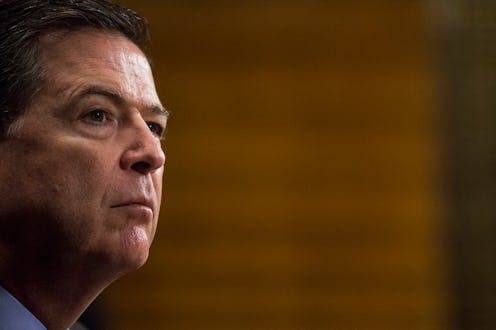News
Trump Fires FBI Director James Comey

On Tuesday, it was confirmed that President Trump fired James Comey, the FBI director. According to White House Press Secretary Sean Spicer, Comey's firing came at the recommendation of Attorney General Jeff Sessions and Deputy Attorney General Rod Rosenstein. The firing came after reports surfaced that Comey's testimony regarding Hillary Clinton's email investigation was inaccurate.
In a statement from the White House briefing room, Spicer reportedly alerted the media to Comey's firing:
The president has accepted the recommendation of the Attorney General and the deputy Attorney General regarding the dismissal of the director of the Federal Bureau of Investigation.
Comey was nominated to lead the FBI by President Obama in 2013. Last week, Comey testified in front of a Senate committee about Clinton's email practices, particularly the practices of Clinton aide Huma Abedin. According to the testimony, Abedin forwarded "hundreds and thousands" of emails, including classified ones, from Clinton to her husband, former congressman Anthony Weiner.
On Tuesday, around the same time that Comey's firing was announced, it was reported that the FBI sent a letter to the Senate to correct Comey's testimony. According to that letter, the number of emails forwarded from Abedin to Weiner was much smaller — and only two of them contained classified information.
Tuesday's firing was not the first time that Trump acted dismissively toward Comey. Last week, Trump tweeted that Comey was "the best thing that ever happened to" Clinton, because he gave her "a free pass for many bad choices." Meanwhile, Trump has previously accused the intelligence community of giving information illegally to the media to propagate reports about Trump's connection to Russia. In a statement on Tuesday, Trump changed his tune, calling the FBI "our crown jewel of law enforcement."
Setting Trump's relationship with the intelligence community aside, the president now faces a new task: hiring a new FBI director. The hiring process will look similar to Trump's Cabinet appointments. He'll have to nominate his choice for Comey's successor, and that individual will need to be confirmed by the Senate. With a Republican majority in the Senate, that may not be difficult, but it did prove difficult for Trump to get many of his previous Cabinet appointments to the finish line.
In fact, Trump's Cabinet nomination process only officially ended a couple of weeks ago. His final appointee, Secretary of Labor Alex Acosta, was confirmed at the end of April. For the to-be-determined future head of the FBI, that process now begins all over again.